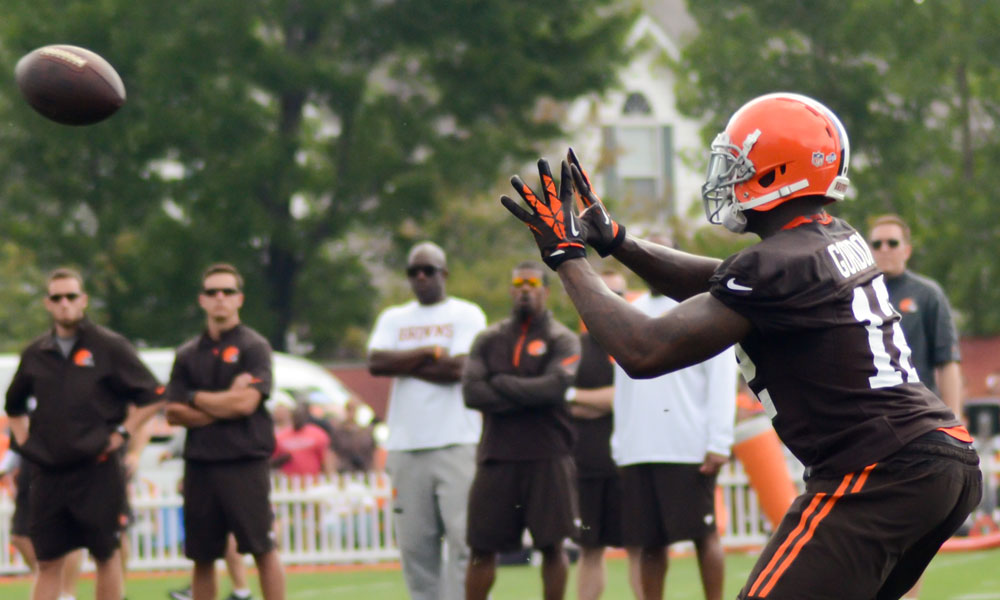
NFL Players Union Backs Changes to Drug Policy
Players in the football league, who have seen teammates and rivals receive long suspensions for relatively minor infractions, have approved an agreement by the NFL Players Association and the league to loosen recreational drug restrictions. But the league says that some of the details still need to be resolved.
NFL Players Association members, who have seen teammates and rivals receive long suspensions for relatively minor infractions under the pro football league’s drug policy, have approved a deal between their union and the NFL on changes that would include loosening recreational drug restrictions. But the NFL says that some details still need to be ironed out.
Josh Gordon got some good news late last week.
The Cleveland Browns star wide receiver, who found himself suspended from the NFL for a full season because a trace amount of marijuana was discovered in his system (making him a multiple-time offender of the NFL’s drug policy), is one of the players who could directly benefit from a vote by the NFL Players Association (NFLPA) to change the league’s drug policy. The level of marijuana found was so low, Deadspin notes, that if Gordon were an Olympic athlete or an MLB pitcher, he wouldn’t have been suspended at all. His suspension is expected to be cut to just 10 games.
NFLPA’s Board of Representatives voted on Friday to change the rules, but it is waiting for final approval from the league’s owners. League spokesman Greg Aiello said there are “significant unresolved issues” that have held up a final deal.
“We hope to have final agreements, including effective date for players with adjusted discipline, very soon,” NFLPA said in a statement on Saturday.
Coming at a time when marijuana has been legalized in multiple states—and especially considering the unusual circumstances in Gordon’s case, where urine tests apparently revealed a marijuana level of just above the 15 nanograms per milliliter minimum, which he and his legal reps claim was due to his inhaling secondhand smoke—the policy change is seen as welcome by both the players and the fans, who consider the suspensions of Gordon and others unfair.
The agreement is expected to come with new testing requirements for a substance seen as having a far more direct effect on the game—human growth hormone, or HGH. And NFL players will also be able to appeal, via independent arbitrators approved by the league and the players union, suspensions for drug-test violations, something the union had been fighting for.
The rule changes, which will be retroactive through 2014, could lead to a shortened suspension for Gordon, as well as reduced suspensions for players including Denver Broncos wide receiver Wes Welker, who was suspended for the recreational use of amphetamines in the offseason. The drug class, treated like a performance-enhancing drug now, would be treated like substances of abuse during the offseason, according to The Boston Globe. Because harsher penalties are attached to PEDs, this change would benefit players convicted of amphetamine use.
“We stood up and fought for what was right,” NFLPA Executive Director DeMaurice Smith told the newspaper. “Twenty-five years ago, it was NFL players that set out to make the game clean by asking for and collectively bargaining the first drug-testing policy in professional sports. Today, this union and these player leaders have approved a policy that will serve the game well for generations of players to come.”
Cleveland Browns star Josh Gordon, who was suspended after a trace level of marijuana was found in his system. (photo by Erik Drost/Flickr)






Comments